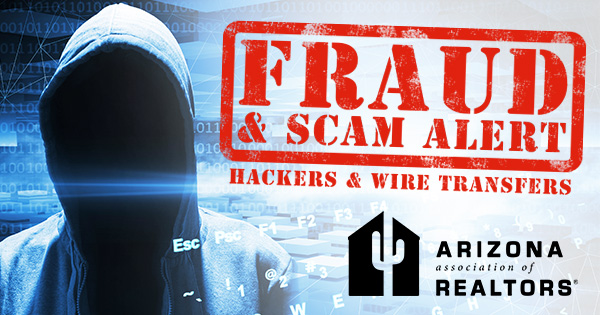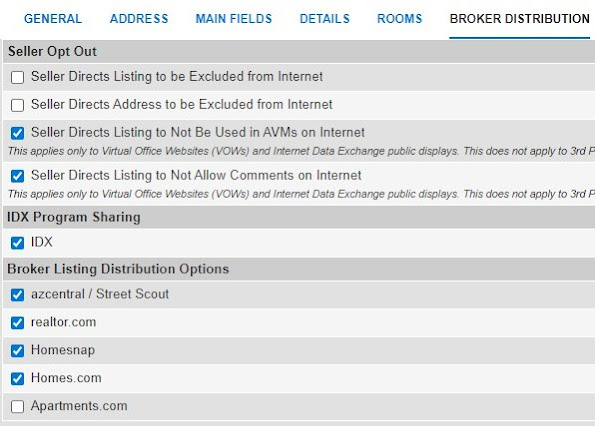Wire Fraud Advisory – Things To Know

A wire fraud advisory is a document that we use to educate consumers about a potentially devistating loss of funds at the hands of some really bad people.
Wire fraud is an unfortunate and growing problem in the real estate industry and it doesn’t look like this threat to our transactions will be going away any time soon. I’m glad that our industry has taken a proactive approach to educating the public and the real estate industry about the potential for buyers and sellers to lose a lot of money due to cyber criminals.
The Federal Trade Commission (FTC) and the National Association of REALTORS have both been issuing warnings to consumers to help explain how these scams work.
From a NAR article, we learn more about how this process tends to work.
Hackers break into the email account of a consumer or real estate professional to determine the date of an upcoming closing. They then use that information to send a fraudulent email to the buyer, posing as one of the professionals involved in the transaction.
The email contains wiring instructions that are allegedly tied to the closing, but which actually rout directly to the scammer’s account. If a buyer is fooled, they may see their bank account wiped out. National Association of REALTORS.
Is wire fraud common in a real estate transaction?
Unfortunately, there have been many phishing scams where thieves hack into the email systems of people who are buying or selling a home and send ficticious emails telling buyers or sellers to wire their money to fake accounts. As you can imagine, things can get ugly very quickly.
Here’s part of what the FTC had to say in a recent blog post:
- “Don’t email financial information. It’s not secure.”
- “If you’re giving your financial information on the web, make sure the site is secure. Look for a URL that begins with https (the “s” stands for secure). And, instead of clicking a link in an email to go to an organization’s site, look up the real URL and type in the web address yourself.”
- “Be cautious about opening attachments and downloading files from emails, regardless of who sent them. These files can contain malware that can weaken your computer’s security.”
- “Keep your operating system, browser, and security software up to date.”
Our state and local associations have been very involved in trying to get the word out, as well.

Take a look at the “Stop Wire Fraud” website for more details, as well! Thay have some great information!
Criminals are smart. They know buying a home can be confusing and comes with a lot of paperwork. So, they’ll pose as a real estate agent, title agent or lawyer and send you fake account details to scam you. – stopwirefraud.org
This video shows the Arizona Department of Real Estate Commissioner talking about wire fraud. Take a look at what Judy Lowe has to say about this unfortunate problem.
Here’s another educational video about wire fraud. This one is from our friend Scott Drucker who is General Counsel for the Arizona Department of Real Estate. In this video, Scott talks more about the wire fraud problems we are seeing in the local Arizona real estate market. I’m pretty sure he’s seen more cases of wire fraud than he’d like to say.
Wire Fraud – Kind of a Big Deal:
As you can imagine, these kinds of crimes are taken very seriously by the authorities. If you have been scammed or if you think someone may be trying to steal your money or identity, you should let the FTC know!
Please don’t ever assume that an email you are reading with wire transfer information is real. In fact, my advice would be to assume it isn’t real until you can actually, legitimately confirm the sender/recipient and the detailed information therein.
Victim of Wire Fraud?
Here’s some tips to take immediately if you have been a victim of wire fraud.
- Contact the financialinstitution wiring the funds with instructions to stop or rescind the transfer and place a freeze on remaining funds.
- Contact your local FBI field office: AZ 623-466-1999. Click to look up your local field office
- File a complaint with the FBI’s Internet Crime Complaint Center. https://www.ic3.gov/default.aspx
- Notify all other parties to the transaction that may have been exposed to the attack. Real estate agents should contact their broker.
- Change all usernames and passwords associated with any account that you believe to have been compromised.
What can you do to protect yourself from wire fraud in your transaction? That’s a GREAT question! Here’s some helpful tips.
10 tips to protect your financial information:
- Never wire money to an escrow account without verifying the wiring instructions.
- It is NOT common for wiring instructions to change during a transactoion.
- Pay VERY close attention to who you are dealing with.
- Do not ASSume that “everything is fine.”
- It is ok to call and speak to your escrow officer.
- If you are not 100% sure, don’t send your money!
- A 3rd party company should not be asking you for money. Only your escrow company.
- A cashier’s check given to the title company is safer than wiring your funds.
- I can not handle your wiring instructions. Please don’t ask.
- Verify, verify, verify. We work with some awesome professionals who are happy to help!
- Bonus tip. Beware of SWIFT codes!
In the beginning of your transaction, your escrow officer should always be in contact with you. They will need your contact information and they can provide wiring instructions for their company.
The email/wire fraud scammers are out in full force and are getting more clever by the minute. If you are someone that will be sending or receiving money via a wire transfer, be absolutely certain that the person/company/entity you are communicating with is legitimate and that you have personally verified the sending/receiving wire transfer information, verbally, either in person or at a phone number that you are sure is legitimate.
DO NOT EVER RELY on relayed wire transfer information from a 3rd party, which means anyone that isn’t the sending or receiving party.
*This page includes links to sources where you can get a LOT of information about wire fraud and your real estate transaction. Please feel free to follow those links and read the articles.
*Image used with permission by the Arizona Association of REALTORS.




